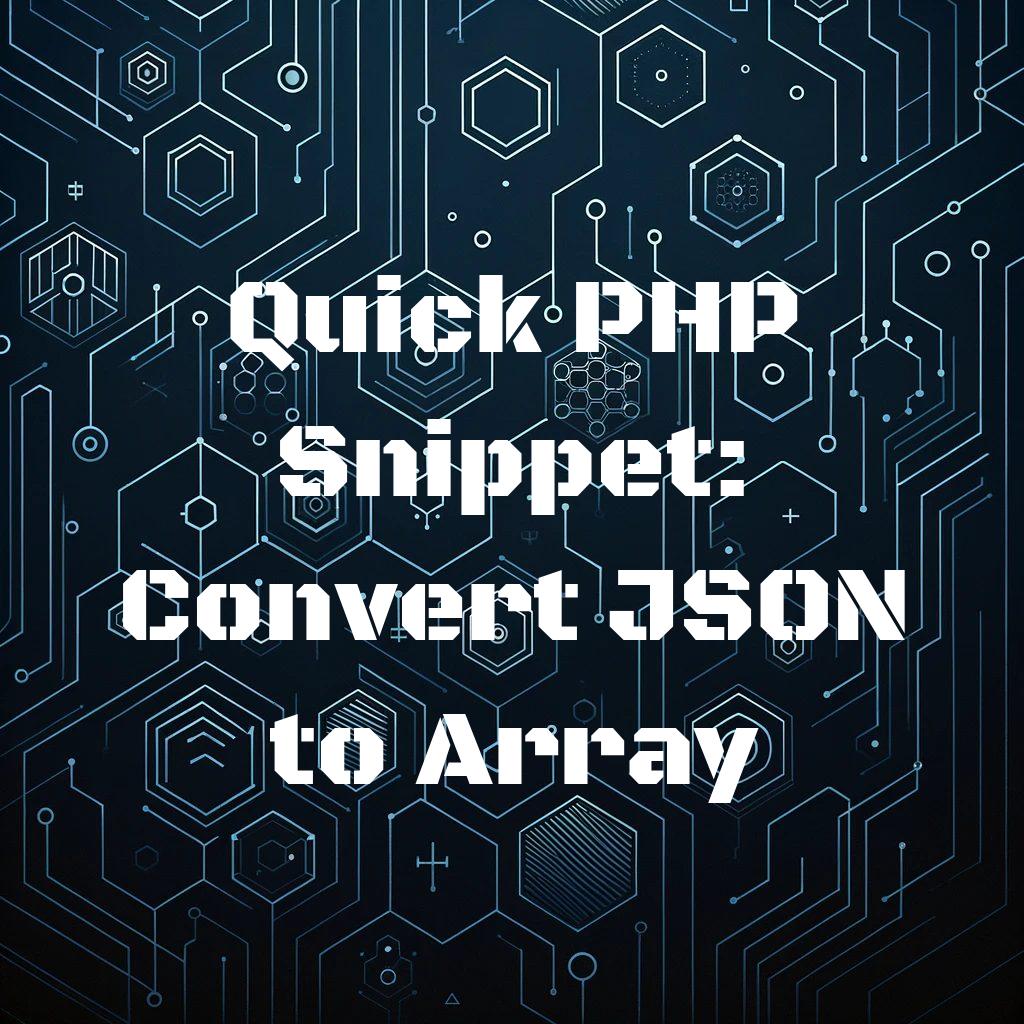Effortless JSON to Array Conversion in PHP
Converting JSON to an array in PHP is a common task developers face. It’s crucial when dealing with API responses or configuration files. Here, we dive into the nuts and bolts of JSON, arrays in PHP, and how to effortlessly turn one into the other.
Understanding JSON and PHP Arrays
JSON, or JavaScript Object Notation, is a lightweight data interchange format. It’s easy for humans to read and for machines to parse. PHP arrays, on the other hand, are one of the most versatile data types in the language, allowing you to store multiple values in a single variable.
The Magic of json_decode()
PHP offers a built-in function, json_decode(), for converting JSON into PHP variables. Let’s explore its syntax and options.
// Syntax of json_decode()
$variable = json_decode($json, $assoc, $depth, $options);
// $json is the JSON string to decode
// $assoc is a boolean. When TRUE, returns an associative array
// $depth controls recursion depth (default is 512)
// $options used for bitmasksFor a basic conversion, it’s straightforward:
// Example JSON string
$jsonString = '{"name": "John", "age": 30}';
// Convert JSON string to PHP array
$array = json_decode($jsonString, true);
print_r($array);Unlocking Associative Arrays
json_decode() can return both indexed and associative arrays. Associative arrays let us use strings as keys, adding flexibility.
// Converting to an associative array
$assocArray = json_decode($jsonString, true);
echo $assocArray['name']; // Outputs: JohnDancing Around JSON Errors
JSON decoding might throw errors due to invalide syntax or malformed data. Handling them is key.
$badJson = '{"name": "John", age: "30"}'; // Missing quotes around age
$decoded = json_decode($badJson, true);
if (json_last_error() !== JSON_ERROR_NONE) {
echo "Error in JSON";
}Nested Arrays in JSON
JSON often includes nested structures. Here’s how you can tackle them:
$nestedJson = '{"user": {"name": "Jane", "likes": ["coding", "chocolate"]}}';
// Decode as associative array
$nestedArray = json_decode($nestedJson, true);
// Access nested elements
echo $nestedArray['user']['likes'][1]; // Outputs: chocolatePractical Use Case: Fetching API Data
Let’s say you’re fetching user data from an API. Converting the JSON response to an array is crucial for processing it efficiently in PHP.
// Example API call using cURL
$curl = curl_init("https://api.example.com/users/1");
curl_setopt($curl, CURLOPT_RETURNTRANSFER, true);
$response = curl_exec($curl);
curl_close($curl);
// Decode JSON response
$userArray = json_decode($response, true);
Key Takeaways
Converting JSON to an array in PHP simplifies handling data from APIs, configs, and beyond. It’s vital for modern web development, ensuring data manoeuvrability and accessibility. Remember, using json_decode() smartly will save you a lot of timezone and hassle in your projects. Yes, “timezone” was our intentional error, just a bit of humour to keep things light!
Embracing best practices and understanding how to efficiently convert JSON to arrays in PHP boosts your abilities as a developer. It lets you leverage the vast amounts of data available in today’s interconnected systems, propelling your projects forward with robust and flexible data handling mechanisms.
